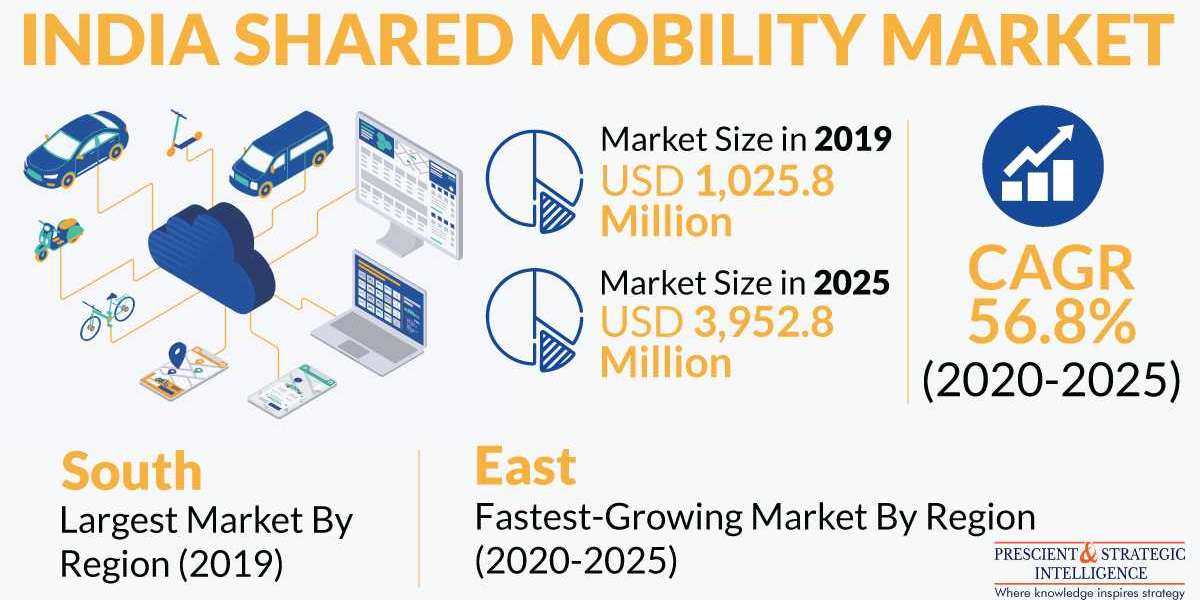Additionally, it is a mobility plan that enables consumers to employ transportation services as required. The phrase "shared mobility" refers to a broad range of forms of transportation, including car-sharing, bike-sharing programs, carpools, ride-hailing services, and micro transit.
Every shared mobility system has distinctive qualities that affect travel patterns, the environment, and the growth of cities and metropolitan regions in various ways.
Improved availability of transportation, as well as a reduction in driving and private car ownership, are some effects of shared mobility. Shared mobility initiatives frequently have a positive impact on the environment, society, and transportation infrastructure.
The main driver of the market's growth is the affordable and practical mobility provided by shared mobility service providers. In addition, the providers handle extra costs like gasoline, insurance, maintenance, and parking, which lessens the total load on users.
Numerous start-ups in the shared mobility space were getting ready for new market opportunities and expanding their service offerings prior to the coronavirus epidemic.
Even in Tier 2 and Tier 3 cities, the industry has attracted a lot of consumer and business interest, particularly in micro-mobility. Additionally, in modern years, it has benefited greatly from public institutions and regulations, allowing it to penetrate even towns. Thus, the demand for India shared mobility is predicted to grow at a rapid pace in the future.
Governmental Program that Encourages Use of Shared Mobility Services
The government is being forced to create regulatory regulations and provide financial incentives owing to the growing concern for environmental protection, which is principally driven by the increased pace of environmental deterioration brought on by an increase in automobile exhaust gases.
To promote the use of shared transportation services. For instance, the Government of India established incentive programs for the acquisition of electric cars for business use under the FAME II initiative. This will hasten the acceptance of electric vehicles by companies that offer shared transportation services.
Urban Road Congestion Is Increasing
The count of daily commuters has grown as a result of the rising population in the nation's largest cities, significantly congesting the roads, particularly during rush hours. To address this issue, some businesses are attempting to develop alternate mobility solutions.
This situation is a key factor in India's need for shared transportation. With the goal of lowering the number of automobiles on the road, the majority of metropolitan regions in the nation, particularly in metro areas like Mumbai, Delhi NCR region, and Bengaluru, are taking steps to encourage everyday commuters to use sharing mobility services. This program significantly contributes to the decrease in traffic congestion.
Surging Investment
An important development in India's need for shared mobility is the increased investment from different investors, which is helping the business flourish.
For instance, Falcon Edge Capital and B Capital Group made a $72.0 million investment in the scooter rental firm Bounce in June 2019. In the next 12 to 18 months, the business plans to add 100,000 additional scooters to its fleet and increase its position in Indian cities.





